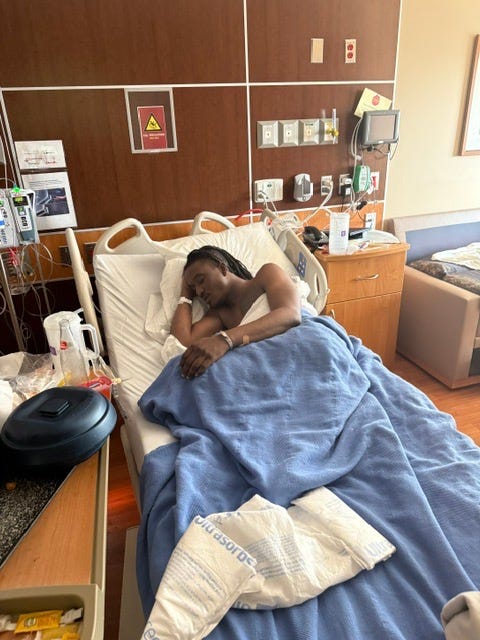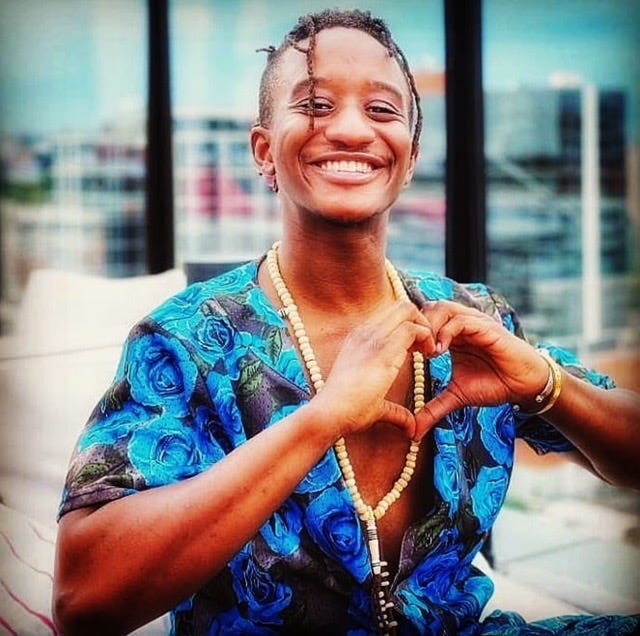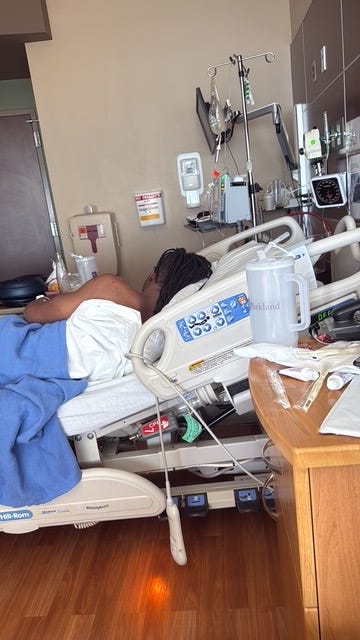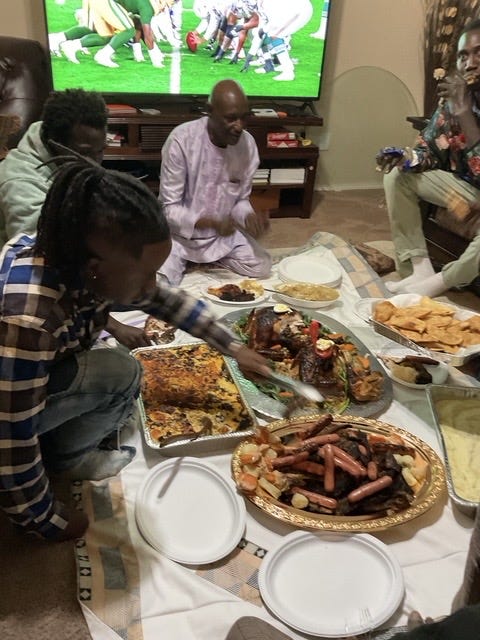“They Got the Wrong One.” Man With Sickle Cell Disease Fights For His Life In ICE Custody
By Nick Valencia | November 12 2025
ROSWELL, GEORGIA— When the pain comes, Ibrahim Diallo says it feels like his body is turning against him. He describes the sensation like the feeling you get when your leg falls asleep. That pins-and-needles feeling, but imagine it’s your whole body— like every muscle, every vessel, every cell is at war with itself.
Sickle cell disease, the genetic blood disorder he’s lived with since birth, has always made survival a daily act of defiance. But now, locked inside the Prairieland Detention Facility, in Texas, that defiance has become a slow-motion battle against the machinery of the state.
Clayton Hillyard is one of Ibrahim’s best friends. They’ve known each other since puberty. His voice breaks now between frustration and disbelief when he talks about “Abe,” his friend of almost two decades.
“Sending him anywhere, anywhere without proper healthcare, that’s a death sentence,” he said. “He needs constant care.”
Ibrahim, 32, came to the United States from Eritrea when he was 5-years-old. His mother, a home-care worker who has spent her life tending to others, has now spent months pleading for someone to tend to her son. Since his detention in February, she’s watched his health decline through scratchy phone calls and secondhand reports. ICE has taken him to the hospital three times — each trip a desperate race to stop his blood from clotting and his body from shutting down.
“They got the wrong one.”
By ICE’s own standards, Ibrahim should never have been detained. Federal directives — ICE Directive 11032.4, among others — instruct agents to avoid detaining individuals with serious medical conditions unless absolutely necessary. Yet Ibrahim has spent nearly a year inside the system, cycling between detention facilities and overcrowded county jails, often alongside violent offenders.
“It’s one of those situations where they got the wrong one,” Clayton says. “I voted for Trump. I voted for what they’re doing — getting the bad people out. But this? This isn’t that. Abe’s a good kid. He’s got a good heart.”
He pauses, the weight of contradiction heavy in his voice. “I didn’t vote for my friend to be deported.”
The irony would feel cinematic if it weren’t so cruel: a man detained under a policy his own friend supports, and a friend now fighting the same bureaucracy he once believed in.
Clayton describes hours spent on the phone with ICE officials, pleading for medical care, only to be laughed at or hung up on. “They would literally laugh,” he tells me. “I’d call back, they’d hang up again. I’d switch phones, call from another number, and they’d block me. They’re murdering him by keeping him in there.”
A bureaucratic ghost story
The paper trail of Ibrahim’s case is blurry — a missed hearing notice sent to the wrong address, a father estranged from his mother, a DACA application lost in the churn of changing administrations. He’d been on the waiting list for eight years. When DACA protections were rescinded, he fell into the shadows — not by choice, but by bureaucracy.
“I did everything I was supposed to do,” Ibrahim told his friend in a call Clayton remembers vividly. “I was just trying to survive. The last thing on my mind was my paperwork.”
Now that oversight may cost him his life.
When I ask Clayton if this experience has changed his politics, he hesitates.
“It hasn’t changed my politics,” he says slowly. “But it’s changed my view on humanity. It’s made me disgusted with the system.”
He says he’d still vote for President Trump — “probably,” he adds — but only if Ibrahim is freed. “If they deport him, no. I can’t say I would.”
That contradiction — a friend simultaneously defending and indicting the very policies that threaten his loved one — is the heart of this story. It’s the mirror of America itself, where empathy too often ends at the edge of ideology.
“I didn’t understand it until I dealt with it firsthand,” Clayton admits. “You feel hopeless, helpless. You’re screaming into the phone, and they’re laughing. Until it happens to you, you just don’t get it.”
The cost of cruelty
What Clayton doesn’t yet realize — or perhaps can’t bring himself to say — is that his friend’s story is far from unique. Across the country, immigration detention facilities have become holding tanks for the medically vulnerable: diabetics, dialysis patients, people with autoimmune disorders, and others who require specialized care. And, as we highlighted recently, some of those individuals include the most vulnerable like pregnant women or women who recently gave birth.
In 2023, a federal watchdog found that ICE failed to provide adequate medical attention in nearly half the cases it reviewed. The same report cited multiple preventable deaths — people whose conditions worsened or became fatal because of delays in treatment, medication shortages, or the absence of specialized diets.
In that light, Ibrahim’s story isn’t just a medical emergency. It’s an indictment.
A country of contradictions
There’s a quiet cruelty in what’s happening here. A man who’s lived in this country since childhood is now facing deportation to a place he doesn’t know, for paperwork he never received, while his body deteriorates inside a facility unfit to keep him alive.
And one of his best friends — the man who once believed in this system — now finds himself begging it for mercy.
“We wanted to get the murderers, the rapists, the bad people out,” Clayton says. “We didn’t vote for this.”
The great moral test of this moment isn’t about borders or ballots. It’s about who we become when compassion becomes conditional.








Would still vote for trump...and there we have it. He doesn't give a shit about his friend. Does he think his friend was the only one to experience this? Voting against your best interest is all righty dummies do
He would still vote for trump. Even when it happens right in front of them, they don't attach it to trump and his racism. They want to believe it's just one mistake. It's unbelievable, except that's what so many MAGA are saying. In another case, even though his own wife was deported, the man said he would still vote for Trump. What is WRONG with these people???